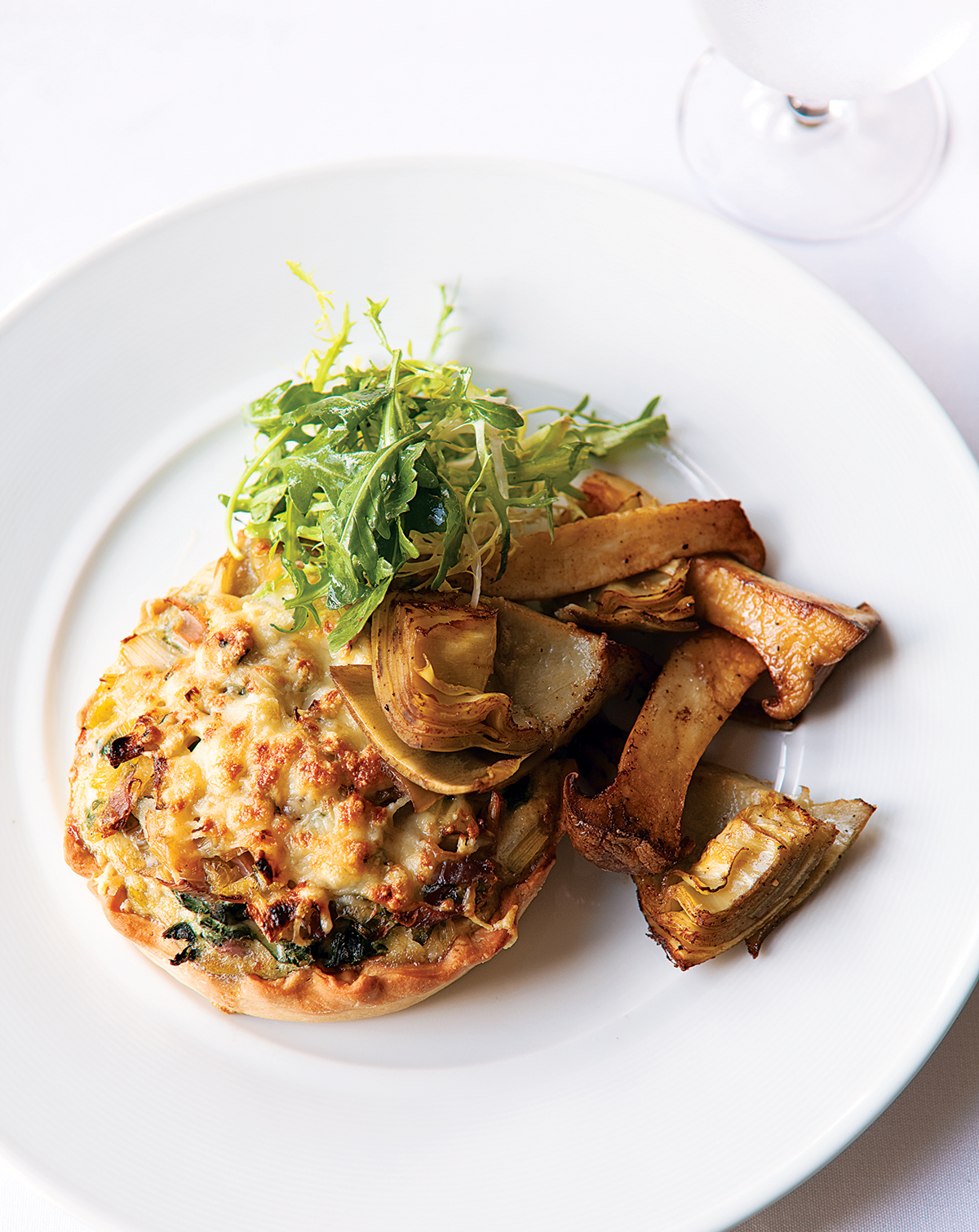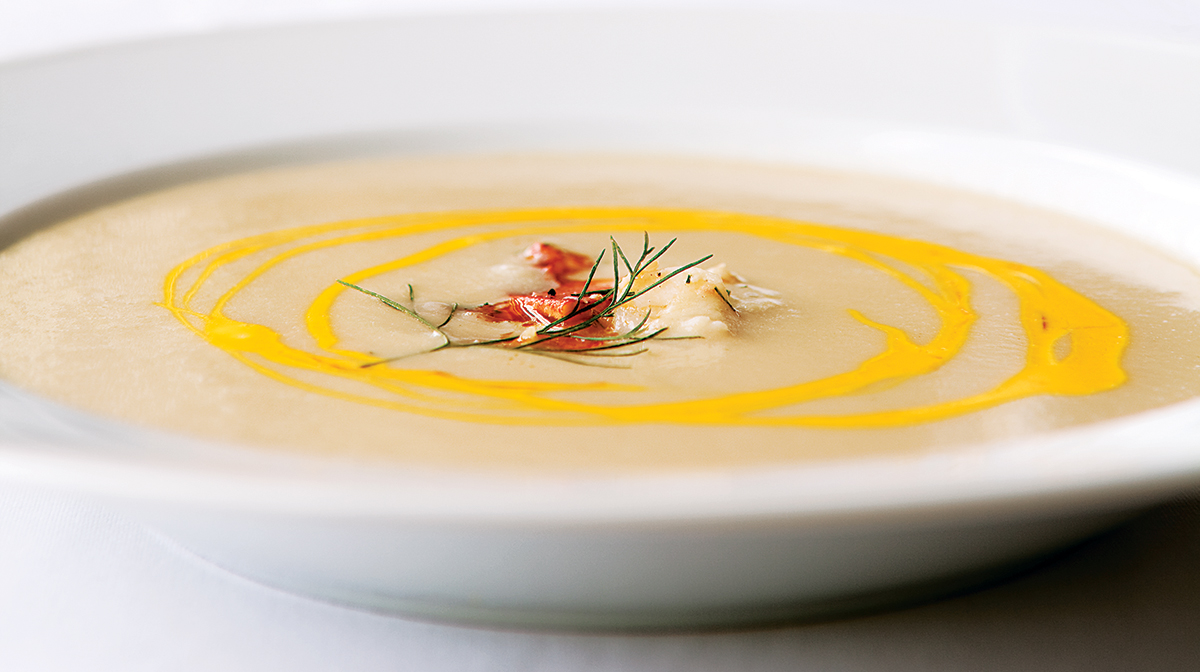Restaurant Review: 80 Thoreau
Why am I surprised by a polished, grownup restaurant in the suburbs? I shouldn’t be — especially not in ritzy Concord. If anything, the surprise is that even more ambitious and citified chefs don’t think the grass is greener where there are actual acres of grass — and plenty of green to be spent on nice meals.
The restaurant in question, 80 Thoreau, is located inside Concord’s railroad depot on a strip that has long been a rare suburban culinary oasis. Moncef Meddeb, the founding chef-owner of L’Espalier, cooked for a while at a former occupant of the space, the casual Aïgo Bistro. In contrast, 80 Thoreau is a place for serious dining — and, just as important, serious hospitality. The co-owners, Ian Calhoun and Vincent Vela, have worked in impressive eateries: Calhoun, a local boy, at New York’s Rainbow Room; Vela at Per Se and Tom Colicchio’s Craft. Now they’ve opened a comfortable spot with a vaguely early American interior — lots of wood, including tobacco-barn planks; plain surfaces painted in white and light blue; open spaces — that makes it feel like a New England inn (though it does get a bit noisy).
The restaurant is sophisticated rather than showy, well heeled but not ostentatious — the equivalent of a woman with proudly undyed hair and only the barest traces of makeup, but high cheekbones and perfect posture. And that’s just the kind of customer who is drawn to the place. With tables full of Brahmins and people who almost certainly meet one another on Nantucket and on their childrens’ soccer fields, 80 Thoreau looks like Hamersley’s or Rialto West.
There’s a common thread: Carolyn Johnson, the chef, worked with Jody Adams for seven years at Rialto, and her food clearly shows the influence — generous and abundant without being over the top, each element distinct and well sauced. Where Adams focuses on regional Italian, Johnson is choosing pan-Mediterranean influences. At heart this is solid southern French food by way of northern California, with a particular — and these days, inescapable — emphasis on the local. A big blackboard lists the nearby farms and cheesemakers whose products are featured on the night’s menu.
Johnson’s dishes change regularly, and some of them — a spring onion tart that made me rethink and crave quiche; a big, perfect sirloin with more of those spring onions and tiny, freshly dug carrots — are just the kinds of meals you want when you’re bothering to go out and willing to pay high, though not excessive, prices. Johnson’s food can be uneven and salty, but mostly it’s comfortable and pleasant. And the service is better than that — friendly from the moment you step in, attentive and helpful but unobtrusive from start to finish.
The simpler Johnson’s concept, the better her execution. A farm salad with tender Bibb lettuce, a soft-poached egg, and herbed yogurt ($10) in a sherry vinaigrette (“the only nonlocal element,” Johnson says) was spring heaven; the brightly flavored fennel-and-white-bean soup, enriched with a saffron crème fraîche (pictured, $8), was sheer luxury. Other starters, though, faltered. Duck confit with tiny green-white flageolet beans, toasted hazelnuts, and vinegar-spiked cherry compote ($13) was a superior rendition of confit — the skin crisp, the meat soft and richly flavored — but marred by excessive salt. The pillowy inside, crispy outside seared gnocchi ($11) with lovely fresh spring morels (not local) and new peas from Verrill Farm (very local) were buried by the artichoke cream sauce. Fried soft-shells with a nicely peppery and garlicky harissa ($13) tasted mostly of grease and salt.

